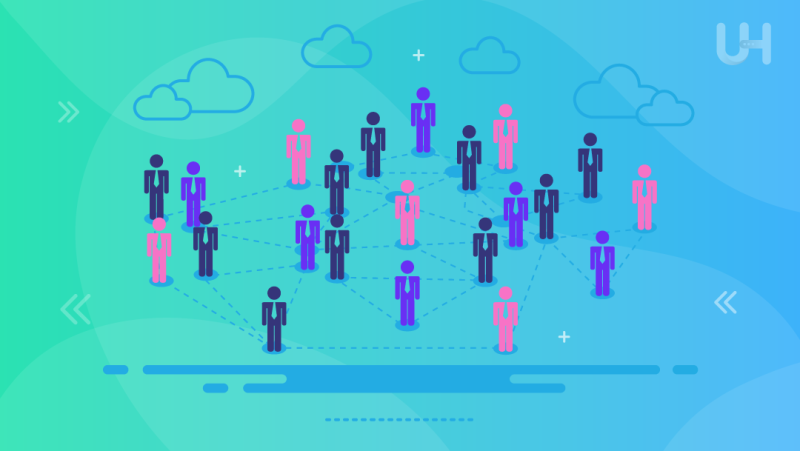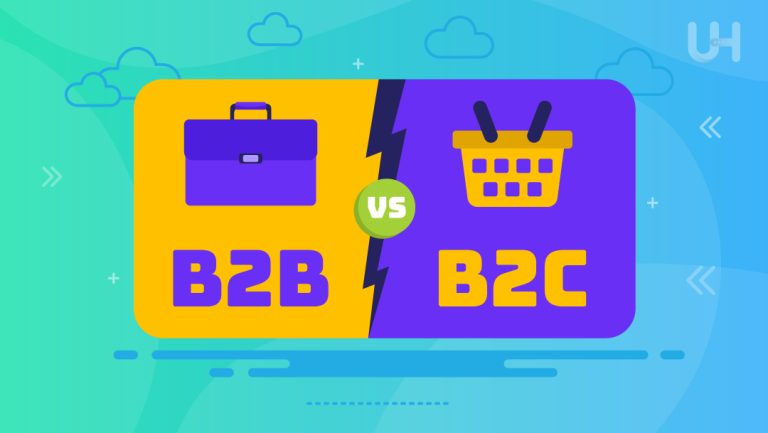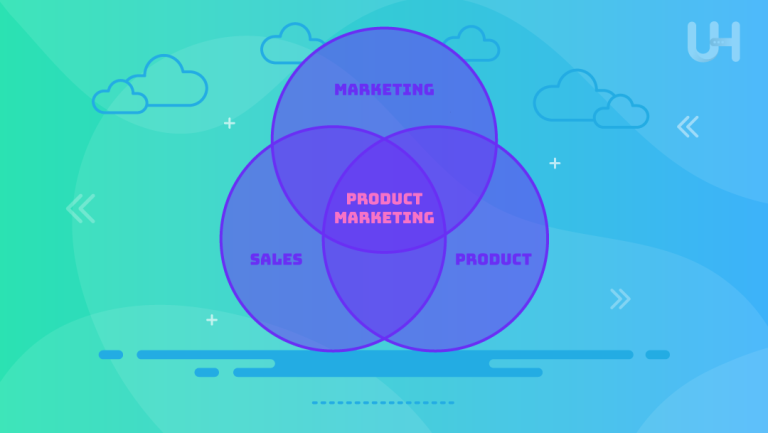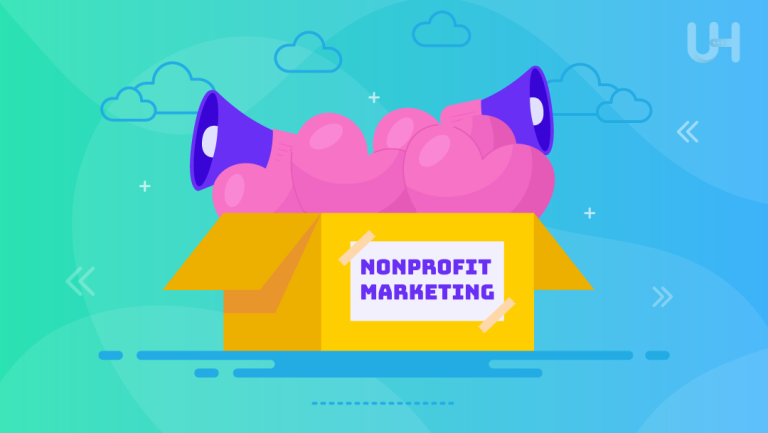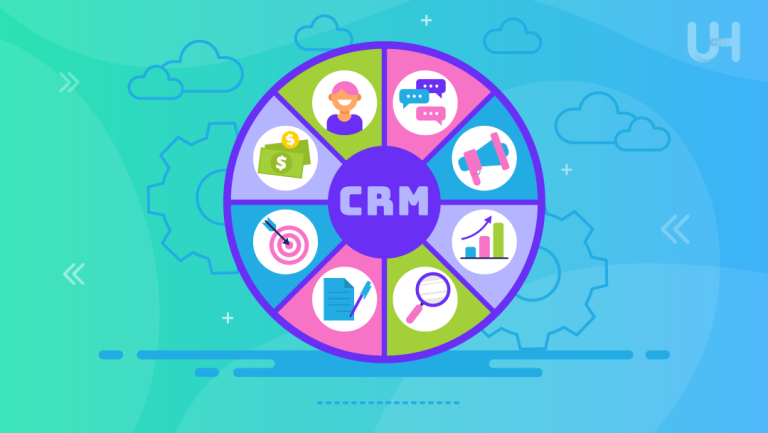The customer base is the backbone of any successful business, representing the loyal customers who drive consistent revenue and growth. Customer base is a concept that keeps your firm thriving-business success is often driven by an understanding of your customer base. It refers to a group of regular customers who have constant engagement with your products or services. These loyal customers are key contributors to your revenue and form the base of your business. Without a clear understanding of who they are and what they value, it becomes difficult to develop successful growth and retention strategies.
Customer base is the need of the hour in this competitive market of today. A loyal customer does more than just repeat sales; they give stability, advocacy, and long-term business sustainability. Identifying the core group, nourishing it, and growing it is the best way for businesses to secure consistent revenue and a strong base for lasting success.
Understanding Customer Base
The customer base is known to be the group of customers who frequently buy a company’s product or service. These are not occasional buyers, but people or businesses that form the basis of revenue generation for the business. In contrast to those who buy once, a customer base typically consists of loyal individuals or businesses who continually choose your brand.
One-time buyers mostly aim at convenience or some discount offer, but they are unlikely to come back. A loyal customer base sticks with your brand for more extended periods. They believe in your products and feel a connection to your business. The relationship is long-term and makes them an asset for any business. To turn one-time buyers into loyal customers, you can learn more so you can create a strong sales funnel.
Characteristics of a Strong Customer Base
A strong customer base is important for business success, ensuring continuous growth stability.
Loyalty and Retention
A strong customer base always depicts high levels of loyalty. These repeat customers always keep coming back to your business even when your competitors offer similar products or services. They trust your brand and are confident in the quality that you deliver to them. Furthermore, they seek the differentiated experience that you offer which ensures not to hop onto another alternative. Lastly, loyal customers become emotionally invested in your brand, making them more unshakeable. Thus, it has become a cost-efficient strategy that focuses on retaining these customers in sustaining long-term growth.
Strong Engagement with Products or Services
Active involvement with your products or services is often done by loyal customers, and this benefits your business in many ways. They frequently provide feedback so you can improve and adapt to their needs. They also participate in your promotions, campaigns, and loyalty programs and, hence, reflect their eagerness for your brand. Moreover, they tend to buy more and try new offers more readily. This constant interaction even increases sales but at the same time enables you to sharpen your strategies as much as possible based on genuine customer feedback. Therefore, a highly interactive customer base keeps making your business relevant and competitive in an ever-changing market.
Word-of-Mouth Referrals
Word-of-mouth referrals are also one of the greatest advantages of a solid customer base. Happy customers, by nature, market your brand to others such as their family, friends, and colleagues. They thus share positive experiences that build trust and attract more buyers; besides, they are very impactful as people tend to consider recommendations from someone close to them more than traditional advertising. Not to mention, it is cheaper as you don’t need to spend heavily on promotional campaigns. Also, maintaining a good relationship with your customers enables you to utilize their loyalty to increase your audience base and, consequently, your reputation.
Boost Your Customer Base with CRM Hosting!
Explore powerful CRM hosting solutions tailored to your business needs. Visit Ultahost CRM Hosting and take the first step toward building stronger customer relationships and driving sustainable growth.
Different Types of Customer Bases
Customer bases can be quite different because of the type of business and the geographic area it covers.
Consumer-Based Businesses (B2C Models)
Consumer-based businesses sell to individual customers directly. These businesses design products or services focusing on the personal needs and preferences of the targeted consumers. A typical B2C marketing model includes retailers, restaurants, and even e-commerce stores.
In a consumer-based customer base, emotions, trends, or convenience often beget the buying decision. Businesses should engage with their audience creatively through personalized marketing, attractive offers, and excellent customer service. Also, repeat buyers are pivotal for growing sales; therefore, companies will have to craft loyalty programs and incentives to retain them. By knowing individual customers’ preferences and behavior, businesses can easily build a loyal and strong customer base through this model.
Business-To-Business Models (B2B Setups)
Customer bases based on business-to-business models sell products or services to other businesses. In contrast to B2C, in B2B, there are usually several stakeholders in the decision process and there is much more emphasis on the principles of value and efficiency. Examples of B2B companies include suppliers, software companies, and consultancies.
In such an environment, firms must win the trust of and nurture long-term relationships with their customers. They must provide customized solutions tailored to a particular business problem. In addition, communication and transparency are key elements in retaining these customers. By continuously generating value and working professionally, B2B companies can anchor a firm, loyal customer base.

Local vs. Global Customer Bases
These differ in preferences, needs, and the strategies required to engage them effectively.
Local Customer Bases
Local-based customers are those who reside within a given geographical location. These customers demand personal connections, cultural relevance, and community involvement. Businesses targeting local customers must adopt strategies to suit regional preferences and needs. For example, smaller businesses can attain loyalty by hosting a community event or offering localized promotions. Word-of-mouth referrals also have a greater effect in a local market; hence, customer satisfaction is crucial.
Global Customer Bases
These are far beyond one’s geographical backyard and cut across disparate regions and cultures. Global companies also face the challenge of diversity in the cultural expectations or market requirements. A more flexible strategy has to be embraced in light of this broader audience. A global company may apply a multilingual website, region-specific marketing, and region-specific customer support.
Strategies for Local and Global Engagement
To engage their local customers, businesses should focus on community involvement and personalized marketing. In addition, companies must understand cultural differences and adapt their offerings accordingly. Moreover, they should leverage technology to connect with distant audiences, ensuring seamless customer experiences worldwide. By doing so, businesses can effectively engage globally and broaden their reach. Furthermore, by addressing the distinct needs of both local and global customer bases, companies can not only expand their scope but also maintain a strong and competitive market presence. Consequently, this approach fosters long-term growth and customer loyalty.
Why Customer Base Matters for Business Growth
A significant customer base is essential for steady revenue, cost efficiency, and long-term business stability.
Revenue Stability
The most important thing for steady revenue is a loyal customer base. These customers continue to make repeat purchases, ensuring income becomes predictable within time. This eventually enables the business to project sales better and make long-term strategies. Additionally, a stable customer base ensures minimal fluctuations in revenue, thus making it easier for the company to invest in other developmental areas. Businesses without this constant supply would often fail to sustain their operations or to grow effectively.
Cost Efficiency
Customer retention is always cheaper compared to customer acquisition. It costs five times more to get new customers compared to retaining old customers. More resources are saved when a business concentrates on customer retention. This saves businesses money on marketing and advertising efforts and yet yields consistent sales. Existing customers often respond better to upsells, cross-sells, and new offers by making them have a higher overall customer lifetime value (CLV).
Brand Advocacy
The support of loyal customers is essential in promoting the business. Due to positive word-of-mouth, referrals, and reviews, they expand your reach without any cost. This organic marketing is very valuable because most of the potential customers trust recommendations from friends or family more than any advertisement. Therefore, a well-nourished customer base develops brand awareness and credibility, which attract new customers.
Business Sustainability
A strong customer base provides resilience in uncertain times. Such businesses equipped with a loyal customer base can survive any downturn or changes in markets during economic uncertainty. These customers will continue to support the business using reliable eCommerce Hosting because of their trust and satisfaction. In addition, a loyal customer base enables businesses to respond quickly and efficiently to the shifting nature of the market because loyal customers are more likely to try new products and services. Hence, maintaining a quality customer base ensures the long-term sustainability and success of a business.
How to Build a Strong Customer Base
Building a strong customer base requires understanding your audience, providing exceptional service, offering value, and maintaining consistent engagement.
Understand Your Target Audience
To build a strong customer base, start by understanding your target audience. Conduct thorough market research to identify customer needs and preferences. This will help you tailor your offerings to what your customers truly want. Additionally, analyze customer behaviors to predict trends and improve your products or services. By understanding your audience, you can effectively meet their needs and create a lasting relationship.
Building a strong customer base requires a clear understanding of your marketing approach. Whether you focus on inbound marketing strategies that attract customers through valuable content or outbound marketing tactics like ads and direct outreach, it’s important to align your efforts with customer needs. To better understand the differences, check out Inbound vs. Outbound Marketing and discover which approach works best for growing your customer base.
Provide Exceptional Customer Service
Exceptional customer service is crucial for building loyalty. Always prioritize customer satisfaction by addressing concerns quickly and professionally. Be responsive to inquiries, providing timely solutions and personalized assistance. When customers feel valued, they are more likely to return. Furthermore, consistently delivering excellent service encourages positive reviews and word-of-mouth referrals.
Offer Value Through Quality Products
Offering quality products and services is essential for retaining customers. Ensure that your offerings consistently meet or exceed customer expectations. When customers trust the quality of your brand, they are more likely to return and recommend your business. Additionally, continuous improvement and innovation show customers that you care about delivering value. This commitment to quality helps strengthen your customer base over time.
Engage Through Marketing and Communication
Effective marketing and communication help you stay connected with your customers. Leverage personalized marketing strategies to engage your audience on a deeper level. Tailor your messages to meet their specific needs and preferences, making them feel understood. Stay active on the platforms where your audience is most engaged, whether it’s social media, email, or blogs. This consistent communication helps build relationships and keeps your brand top of your mind.
Strategies to Grow Your Customer Base
Growing your customer base requires a combination of expanding reach, leveraging referrals, building community connections, and using data-driven marketing strategies.
Expand Your Reach
Expanding your reach is vital for growing your customer base. Use digital marketing campaigns to attract new customers through various online channels. Leverage SEO to ensure your website ranks higher in search results, making it easier for potential customers to find you. Effective SEO involves both on-page and off-page strategies. Additionally, engage on social media platforms where your audience spends time. By optimizing your online presence, you can increase visibility and attract a broader customer base.
Leverage Referral Programs
Referral programs are a powerful tool for growing your customer base. Encourage existing customers to refer new clients by offering incentives, such as discounts or free products. Word-of-mouth marketing is highly effective, as people trust recommendations from friends and family. This strategy not only brings in new customers but also strengthens relationships with current ones. By implementing a referral program, you can expand your reach with minimal cost.
Build Community Engagement
Community engagement helps foster strong connections with potential customers. Host local events or collaborate with nearby businesses to increase brand awareness. These events provide an opportunity to connect with your audience in a more personal way. Additionally, working with local communities builds trust and loyalty, as customers appreciate businesses that support their area. Strong community ties can lead to lasting relationships and an expanded customer base.
Adopt Data-Driven Strategies
Data-driven strategies undoubtedly allow you to make more informed and precise decisions about your marketing efforts. By consistently using customer data to thoroughly analyze buying behaviors, preferences, and trends, you can better understand your audience’s needs. Furthermore, this approach helps you tailor your marketing campaigns to meet customer expectations far more effectively. Consequently, by understanding what works and, equally importantly, what doesn’t, you can continuously refine your approach to maximize results. Ultimately, leveraging data ensures that your marketing efforts remain highly targeted and exceptionally efficient, thereby significantly helping you grow your customer base.
Grow Your Customer Base Effortlessly!
Ultahost’s Social Network Hosting offers the speed and reliability you need to connect with your audience. Visit Ultahost Social Network Hosting and build stronger relationships today!
Benefits of a Loyal Customer Base
A loyal customer base provides consistent revenue, reduces marketing costs, and strengthens brand reputation, driving long-term business growth.
Higher Revenue Potential
A loyal customer base offers significant revenue potential. Specifically, repeat customers tend to spend more over time, which naturally increases the average order value. As they become more familiar with your brand, they often buy more frequently and, in many cases, are more willing to try new products or services. Furthermore, this steady stream of repeat business helps boost your revenue without the need for constant new customer acquisition. Consequently, the value of a loyal customer base lies not only in the frequency of purchases but also in the long-term revenue it generates.
Predictable Sales Cycles
With a loyal customer base, sales strategies become more predictable. Loyal customers provide consistent purchases, allowing you to forecast income more accurately. This predictability helps with budgeting and planning for growth. Additionally, it reduces uncertainty in business operations, making it easier to set long-term goals and manage cash flow.
Positive Brand Reputation
Loyal customers help build a positive brand reputation. Their trust in your products and services is reflected in their continued support and word-of-mouth referrals. As loyal customers share their experiences, they strengthen your brand’s credibility and attract new buyers. This ongoing trust also helps mitigate negative reviews or public criticism, as loyal customers defend your brand and its values.
Reduced Marketing Costs
A loyal customer base reduces the need for expensive customer acquisition strategies. With fewer resources spent on attracting new customers, businesses can focus on retaining existing ones. Loyal customers are more likely to engage with your brand through referrals, social media, or loyalty programs, which further reduces marketing expenses. This cost-saving aspect makes maintaining a loyal customer base a highly efficient business strategy.
Challenges in Building and Growing a Customer Base
Building and growing a customer base involves navigating challenges like increasing competition, changing preferences, balancing retention with acquisition, and economic uncertainty.
Increasing Competition
In today’s crowded markets, standing out is more challenging than ever. With numerous businesses offering similar products and services, gaining customers’ attention requires unique strategies. Companies must differentiate themselves through quality, value, or exceptional customer experiences. Additionally, competition often leads to price wars, which can strain profit margins. To overcome this challenge, businesses must constantly innovate and find ways to offer distinct advantages to attract and retain customers.
Changing Customer Preferences
Customer preferences are constantly evolving, making it difficult to stay aligned with their needs. Trends shift quickly, and feedback from customers must be taken into account to remain competitive. Adapting to these changes requires agility in product development, marketing strategies, and customer service. Businesses that fail to anticipate or respond to shifts in consumer behavior risk losing customer loyalty. Therefore, staying proactive and responsive to customer feedback is essential for continuous growth.
Customer Retention vs. Acquisition Balance
Balancing customer retention with new customer acquisition can be challenging. While attracting new customers is important, retaining existing ones often yields higher returns. However, focusing too much on retention can limit efforts to grow the customer base, while focusing solely on acquisition can neglect valuable existing customers. Efficiently managing resources between these two priorities is key to sustaining long-term growth. Businesses must carefully allocate resources to both areas to maintain a healthy balance and ensure success in the long run.
Economic Uncertainty
External financial factors, such as economic downturns or inflation, can greatly impact customer loyalty. During tough economic times, customers may prioritize spending on essential items, leading to reduced discretionary spending. Additionally, businesses may face higher operational costs, which can affect pricing strategies. To maintain customer loyalty during periods of economic uncertainty, businesses must offer strong value and maintain consistent quality. Being flexible and responsive to customers’ changing financial situations is crucial for retaining a loyal customer base.
Tools and Technologies to Manage Your Customer Base
Utilizing tools like CRM systems, marketing automation, data analytics platforms, and social media marketing tools helps businesses effectively manage and nurture their customer base.
Customer Relationship Management (CRM) Tools
CRM tools are essential for managing customer relationships. These systems help businesses track customer interactions, preferences, and purchase history. By centralizing this information, CRM tools make it easier to personalize communication and improve customer service. Additionally, CRM systems help identify opportunities for cross-selling or upselling, boosting sales. With features like automated follow-ups and detailed customer profiles, CRMs enhance the overall customer experience and foster loyalty.
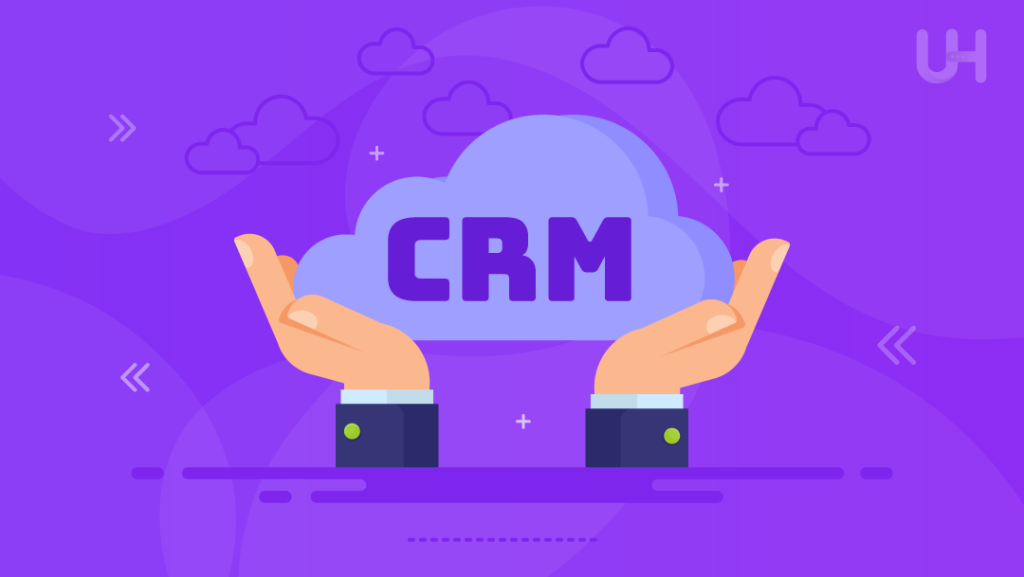
- CRM tools centralize customer data, enabling businesses to create personalized experiences based on preferences and past interactions.
- Customer Relation Management systems streamline communication by automating follow-ups, saving time, and improving customer engagement.
- CRM platforms help identify trends and patterns in customer behavior, making it easier to tailor products, services, and promotions.
- Customer Relation Management software offers analytics to track customer satisfaction and identify areas for improvement in the sales process.
- CRM features enable businesses to segment customers, making it easier to target specific groups with relevant offers and content.
Marketing Automation
Marketing automation tools streamline the process of connecting with customers, making it more efficient and effective. These tools help businesses create targeted email campaigns, social media posts, and ads without manual effort, saving both time and resources. Moreover, automation allows businesses to send personalized messages based on customer behavior and preferences, which significantly improves relevance. By segmenting customers, marketing automation ensures that the right message reaches the right audience at the right time, enhancing the customer experience. As a result, this efficiency not only increases customer engagement but also ensures consistent communication, fostering stronger and more lasting relationships.
- Marketing automation tools enable businesses to automate repetitive tasks like email sending, social media posting, and ad placement.
- Automation platforms allow businesses to send personalized content based on customer behavior, improving relevance and engagement.
- Marketing automation systems offer segmentation capabilities, ensuring targeted messages are delivered to specific customer groups.
- Automation tools track customer interactions and trigger actions like follow-ups or reminders, enhancing customer experience.
- Marketing automation software provides insights into campaign performance, helping businesses refine their strategies for better results.
Data Analytics Platforms
Data analytics platforms provide valuable insights that help optimize marketing and sales strategies. By analyzing customer data, businesses can identify trends, preferences, and purchasing behavior, which enables more informed decision-making. These insights, in turn, allow businesses to make data-driven choices that improve product offerings and marketing tactics. Additionally, analytics platforms help businesses measure the effectiveness of campaigns, allowing them to adjust strategies for better outcomes. Consequently, using data to refine approaches ensures that businesses stay relevant, remain competitive, and effectively meet evolving customer needs.
Social media management tools help businesses engage with their audience effectively. These tools allow businesses to schedule posts, respond to comments, and track engagement across multiple platforms. By maintaining an active social media presence, businesses using fast quick VPS can build stronger relationships with customers. Additionally, these tools provide analytics that help businesses understand what content resonates with their audience. Consistent and responsive engagement through social media strengthens customer bonds and enhances brand loyalty.
- Social media management tools allow businesses to schedule posts in advance, ensuring consistent content delivery even during off-hours.
- Social media platforms integrated into management tools enable businesses to track mentions, comments, and messages, ensuring timely responses and engagement.
- Media analytics tools provide in-depth reports on engagement metrics, helping businesses determine which types of content generate the most interest and interactions.
- Social media management software enables businesses to manage multiple platforms from one dashboard, streamlining communication and reducing the time spent on social media.
- Social media tools support content curation and publishing, helping businesses maintain a balance between promotional content and valuable, engaging posts.
Measuring and Maintaining Your Customer Base
Measuring and maintaining your customer base requires tracking key metrics, gathering feedback, and staying adaptable to evolving customer needs and market trends.
Key Metrics to Track
Tracking key metrics is essential to understanding the health of your customer base.
- The customer retention rate indicates how many customers return to make repeat purchases. A high retention rate shows that customers are satisfied and loyal.
- Customer lifetime value (CLV) helps estimate the total revenue a customer will bring over their lifetime. CLV allows businesses to understand how much they should invest in retaining customers.
- Customer acquisition cost (CAC) measures the cost of acquiring a new customer. By comparing CAC with CLV, businesses can ensure they are spending efficiently on customer acquisition.
Regular Feedback and Improvement
Regular feedback is crucial for continuous improvement. By collecting customer feedback through surveys, reviews, or direct communication, businesses can better understand their customers’ needs and pain points. In turn, this data allows businesses to refine their offerings, enhance customer service, and build stronger relationships. Furthermore, acting on feedback demonstrates to customers that their opinions matter, which in turn fosters greater loyalty. Consequently, incorporating regular feedback helps create a more responsive and customer-focused business environment, ultimately leading to sustained growth and satisfaction.
Stay Relevant
To maintain a strong customer base, businesses must stay relevant. Adapt to changing customer needs by keeping up with market trends, competitor offerings, and evolving consumer behavior. Regularly updating your products or services ensures that your brand remains valuable to customers. Moreover, staying responsive to customer expectations allows businesses to maintain their competitive edge.
Conclusion
A strong and loyal customer base is essential for business growth. It not only ensures steady revenue but also reduces marketing costs and strengthens brand reputation. By focusing on customer retention and satisfaction, businesses can create long-term relationships that drive consistent success. Moreover, tracking key metrics like customer retention rate and lifetime value helps measure progress and identify areas for improvement, ensuring businesses stay on the right path.
Take your business to the next level with reliable solutions like Ultahost Enterprise WP Hosting, designed to support your growth journey. Building and growing a strong customer base is essential for long-term business success.
FAQ
What is customer base?
A customer base is the group of customers who consistently buy a business’s products or services.
Why is a customer base important?
It ensures steady revenue, fosters loyalty, and reduces marketing costs for long-term business growth.
How can businesses build customer base?
Businesses can build it by understanding their audience, providing value, and engaging through personalized marketing.
What strategies help grow customer base?
Using digital marketing, referral programs, and data-driven insights are key strategies to expand a customer base.
How do CRM tools support managing a customer base?
CRM tools centralize customer data, track interactions, and help businesses nurture relationships effectively.
What role does customer feedback play in building a customer base?
Feedback helps refine products and services, showing customers their opinions matter, which builds loyalty.
How can marketing automation help grow a customer base?
It streamlines personalized communication, improving customer engagement and ensuring consistent outreach.





